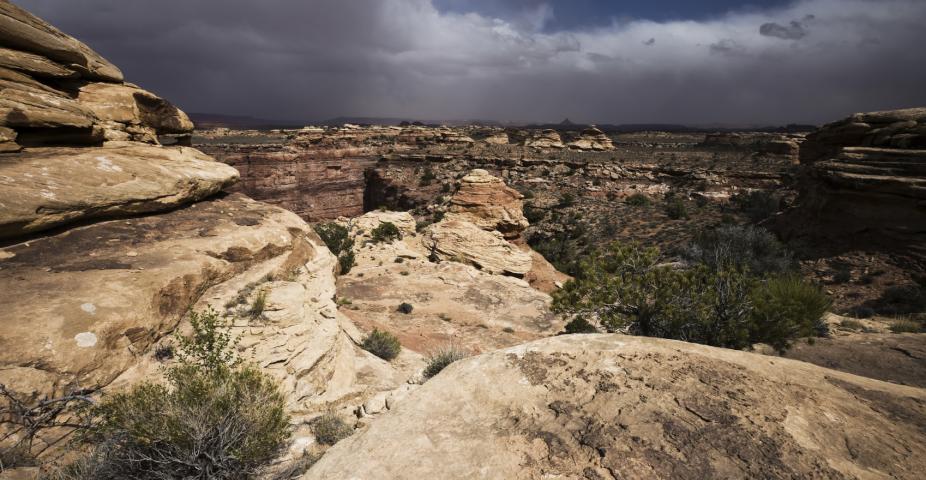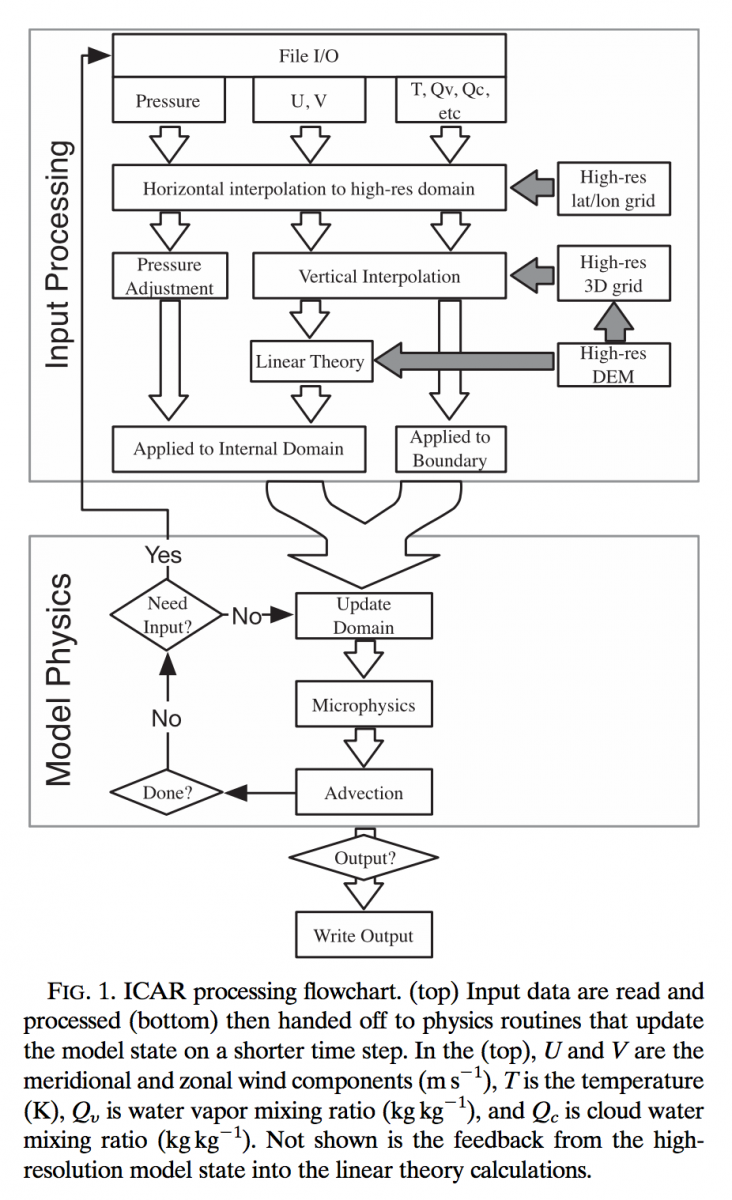Intermediate Complexity Atmospheric Research (ICAR)

Creating the first community quasi-dynamical weather and climate downscaling model.
The Intermediate Complexity Atmospheric Research (ICAR) model is a simplified atmospheric model designed primarily for climate downscaling, atmospheric sensitivity tests, and hopefully educational uses. ICAR is a quasi-dynamical downscaling approach that uses simplified wind dynamics to perform high-resolution meteorological simulations 100 to 1000 times faster than a traditional atmospheric model and can therefore be used to better characterize uncertainty across numerical weather prediction models and climate models, and in dynamical downscaling.
Model Development Team
- NCAR: Ethan Gutmann (PI), Martyn Clark, Trude Eidhammer, Roy Rasmussen
- Uni Research (Bergen, Norway): Idar Bartstad
- U.S. Army Corps of Engineers: Jeff Arnold
- Bureau of Reclamation: Levi Brekke
- Contact: Ethan Gutmann- gutmann@ucar.edu | Julie Vano - jvano@ucar.edu
Papers
Gutmann, E., I. Barstad, M.P. Clark, J. Arnold, and R. Rasmussen, 2016: The Intermediate Complexity Atmospheric Research Model. Journal of Hydrometeorology, 17, 957–973, doi:10.1175/JHM-D-15-0155.1
Gutmann, E., T. Pruitt, M.P. Clark, L. Brekke, J.R. Arnold, D.A. Raff, and R.M. Rasmussen, 2014: An intercomparison of statistical downscaling methods used for water resource assessments in the United States. Water Resources Research, 50, 7167–7186, doi:10.1002/2014WR015559
Gutmann, E.D., R.M. Rasmussen, C. Liu, K. Ikeda, D.J. Gochis, M.P. Clark, J. Dudhia, and G. Thompson, 2012: A Comparison of Statistical and Dynamical Downscaling of Winter Precipitation over Complex Terrain. Journal of Climate, 25, 262–281, doi:10.1175/2011JCLI4109.1
Barstad, I., and S. Gronas, 2006: Dynamical structures for southwesterly airflow over southern Norway: the role of dissipation. Tellus Series a-Dynamic Meteorology and Oceanography, 58, 2-18, doi:doi:10.1111/j.1600- 0870.2006.00152.x
Resources
Gutmann et al. (2016) describes the development of ICAR; the ICAR source code is available at https://github.com/NCAR/icar.
Funding
U.S. Army Corps of Engineers, Bureau of Reclamation, National Science Foundation
